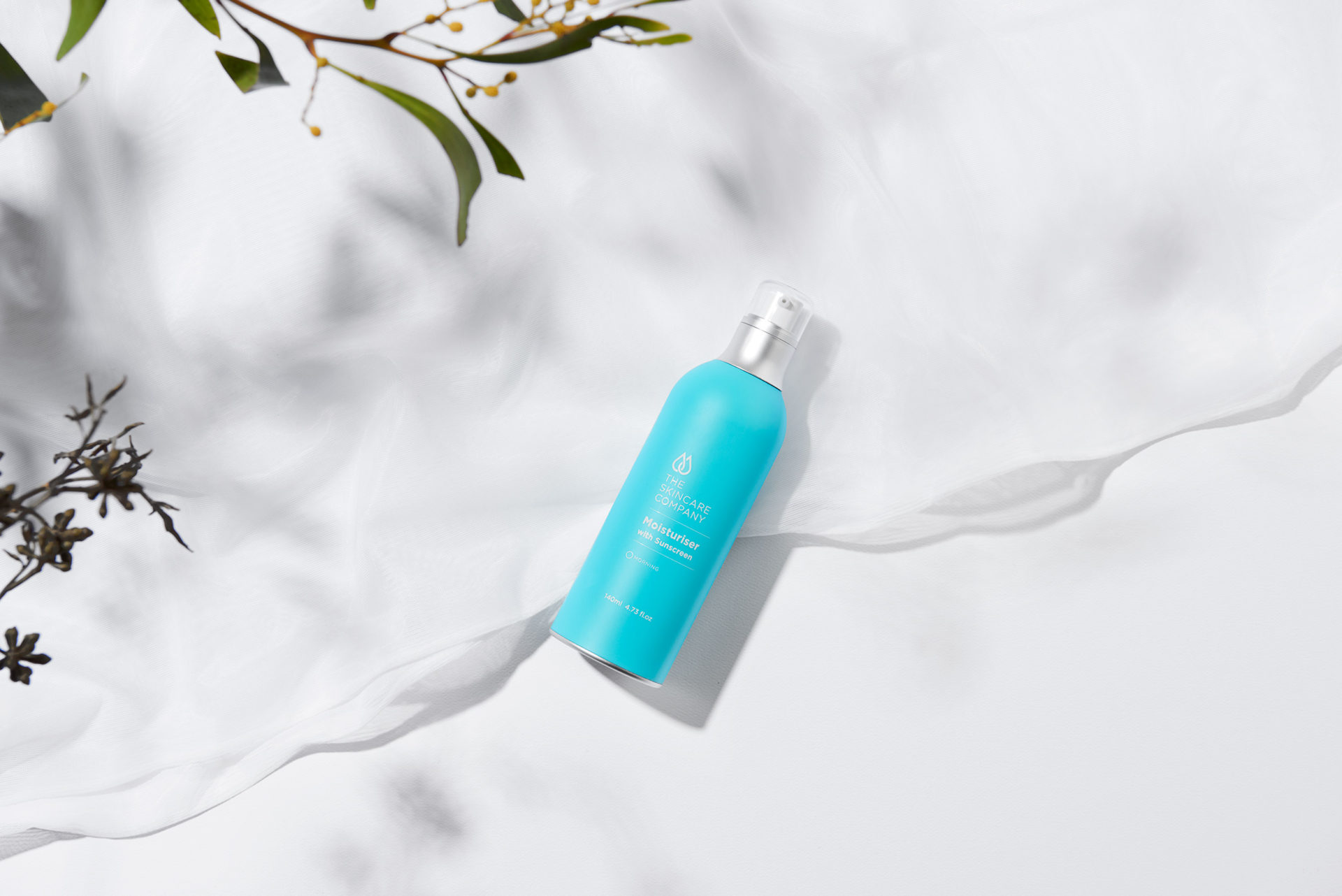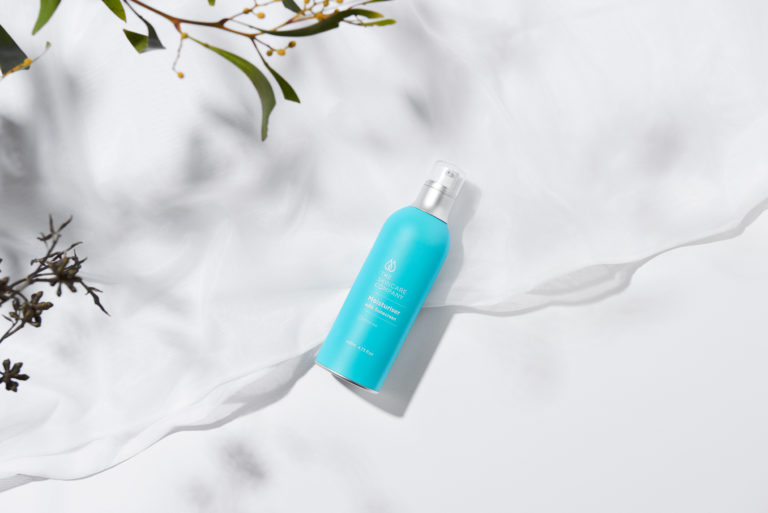What is Cosmeceutical Skincare?
Since 2009, The Skincare Company have been developing scientifically formulated cosmeceutical skincare. The term “cosmeceutical” was first introduced by dermatologist Dr Albert Kligman in 1984 and is derived from a combination of the words cosmetic and pharmaceutical.
Cosmeceuticals bridge the gap between cosmetics and pharmaceutical-grade creams. While cosmetics change the appearance of the skin, cosmeceuticals change its function – as they are highly effective products containing active ingredients that actually change the way your skin works. At The Skincare Company, our formulas are designed to improve skin health, repair damage that causes specific skin conditions and visible signs of aging. Our formulations contain biologically active ingredients that have proven, clinical benefits. When applied topically, these active ingredients can reach the deeper layers of your skin, allowing them to make noticeable changes in the skin. These changes can include reducing acne severity, hydrating the skin, diminishing the appearance of fine lines and wrinkles and sun damage, and promoting skin health, and improve complexion. The ingredients and delivery systems found in cosmeceuticals are often supported by scientific research and are formulated to remain stable and highly effective for topical use.
Becoming aware of the different types of active ingredients and their benefits is essential to selecting a skincare product that will make a positive difference in your skin.
What are some common ingredients in cosmeceuticals?
AHA (glycolic, lactic, citric, malic, mandelic, tartaric acids): Alpha Hydroxy Acids (often called “fruit acids” as many are derived from natural fruit sources) are known for reducing the signs of aging by hydrating the skin and promoting the shedding of dead skin cells from the outer layer of the skin (epidermis). Which can brighten the skin and improve the absorption of the products you apply afterwards.
BHA (salicylic acid): Beta Hydroxy Acid is an oil-soluble ingredient, therefore it has the ability to break down oil and debris inside the pores. Salicylic acid is particularly useful for oily or acne prone skins because of its ability to penetrate pores.
Vitamin A (retinol): The ultimate anti-aging ingredient. Retinol (Vitamin A) helps improve visible signs of aging by reducing the appearance of fine lines and wrinkles on the skin while leaving it soft, smooth and supple. It encourages cell renewal which enhances the skin’s youthful appearance. Clinical studies show that retinol also has anti-acne properties.
Vitamin B3 (niacinamide): Niacinamide has multiple beneficial effects on damaged and aging skin. It is a compound that the skin requires for proper function and is naturally in skin. It has a range of functions including assisting in moisture retention, keratin and ceramide synthesis and controlling sebum production. It improves the surface structure and smoothes out wrinkles in aging skin. It also has anti-inflammatory effects in acne, rosacea and atopic dermatitis, and improves skin prone to pigmentary disorders and acne.
Vitamin B5 (panthenol): In clinical studies Vitamin B5 has been shown to combat aging and acne by improving skin hydration, maintaining skins elasticity, and increasing skin softness. This vitamin also has anti-inflammatory properties and is an important co-factor for the correct functioning of some important enzymes involved in skin healing and renewal.
Vitamin C (ascorbic acid): Vitamin C is an essential vitamin, necessary for collagen production and skin repair. Within the skin, Vitamin C promotes the repair of aging skin and protects skin from the oxidative damage caused by sunlight. Vitamin C is also a potent anti-oxidant and free radical scavenger, which aids in detoxifying and healing. Topical application of vitamin C can lead to a finer, smoother skin, with improved colour, tone and texture.
Vitamin E: An antioxidant, Vitamin E protects from environmental aggressors and has an anti-inflammatory effect. Because Vitamin E lives in and protects cell membranes, which form a barrier around cells to keep them healthy and hydrated, it indirectly helps skin stay moisturised and supple.
Hyaluronic acid: Hyaluronic acid is a moisture-binding ingredient which acts as an incredible hydrator for the skin. Hyaluronic acid is an important natural component of skin. It is particularly important for wound healing, since it provides a matrix to enable collagen to form. These properties mean that hyaluronic acid is important for keeping the skin young by improving the skin’s ability to repair.
Coenzyme Q10 (uniquinone): Coenzyme Q10 helps manage energy production in cells and may have anti-aging effects on skin. The antioxidant effects of Q10 may also protect the skin against both intrinsic and extrinsic aging.
Peptides: Peptides are short chains of amino acid sequences that are the building blocks of larger proteins. Peptides help to improve the communication between cells so they can function at their best and support healthier, more radiant skin.
Botanicals: Botanicals include plant extracts from leaves, roots, fruits, berries, stems, bark and flowers. Botanicals may have antioxidant, anti-inflammatory and/or skin soothing properties. Examples include soy, curcumin, dragon’s blood extract, green tea extract, glycyrrhiza glabra extract, aloe vera, litsea cubeba extract, shea, camellia sinensis extract, witch hazel, allantoin etc.
Sunscreens: The most important ingredient in cosmeceuticals because they protect skin against sun damage, photo-ageing and skin cancers. Repeated and excessive sun exposure plays a major part in visible skin damage and aging, because collagen and elastin (fibers that give skin its even and youthful appearance) are easily damaged by ultraviolet (UV) radiation.
Are there any rules for introducing cosmeceuticals into your routine?
We recommend you don’t dive straight into using actives and allow for some adjustment period. If the skin is overstimulated with too many active ingredients at once, you may experience a breakout or some sensitivity for the first few weeks. We recommend keeping it simple to start with – Daily Cleanser, one morning serum and Moisturiser with Sunscreen. After a few days of use, introduce further products periodically based on your skin type and concerns. Observe your skin for any sensitivity or reaction. Vitamin A should always be introduced very gradually to build up tolerance, and should always be accompanied by daily SPF application. Acids like AHAs and BHAs can also increase the skin’s sensitivity to the sun and must be accompanied by daily SPF.


